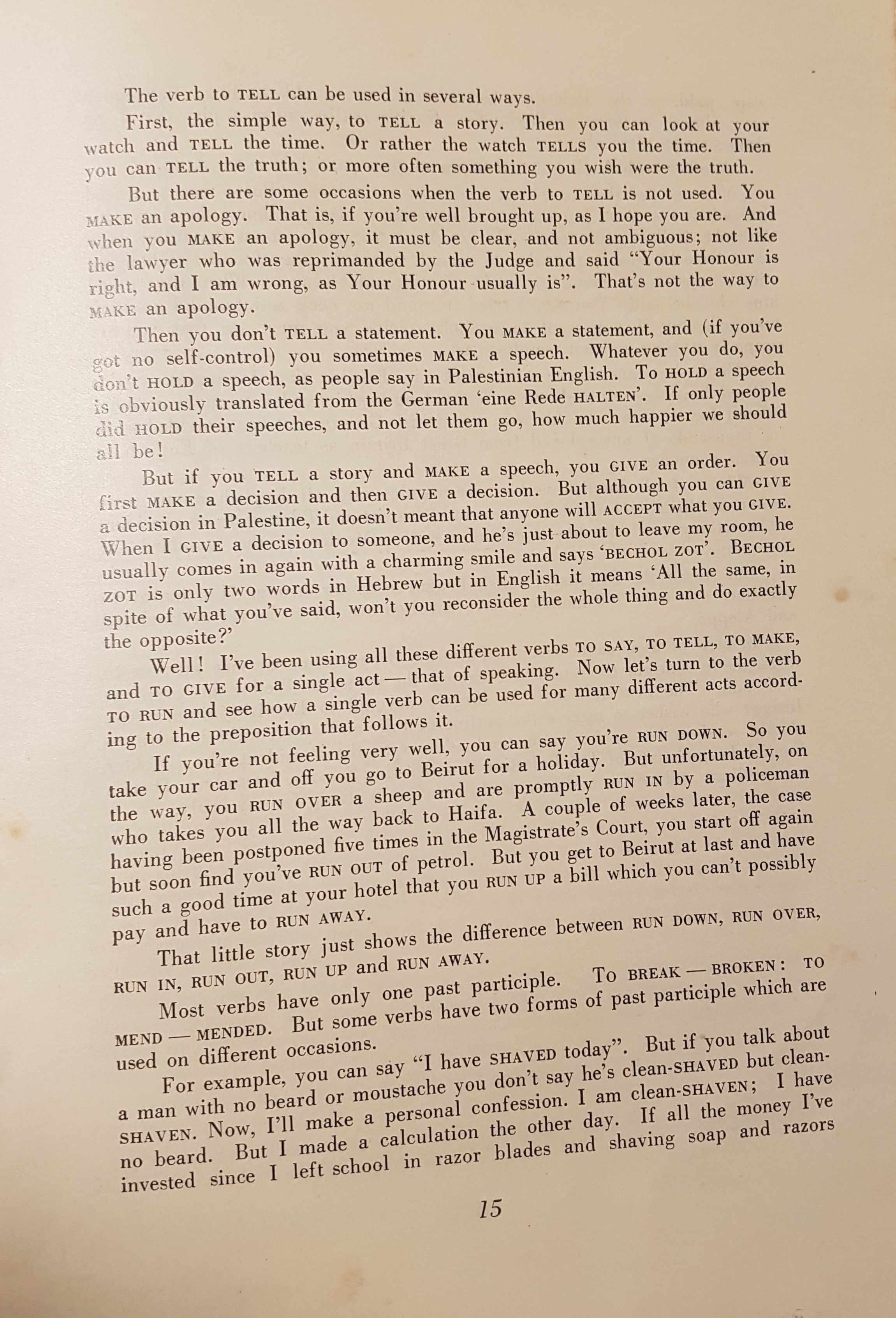|
Let's Speak English
| Contents | Previous Page | Next Page | - Page 15 - The verb to TELL can be used in several ways. First, the simple way, to TELL a story. Then you can look at your watch an TELL the time. Or rather the watch TELLS you the time. Then you can TELL the truth; or more often something you wish were the truth. But there are some occasions when the verb to TELL is not used. You MAKE an apology. That is if you're well brought up, as I hope you are. And when you MAKE an apology, it must be clear, and not ambiguous; not like the lawyer who was reprimanded by the Judge and said "Your Honour is right, and I am wrong, as Your Honour usually is". That's not the way to MAKE an apology. Then you don't TELL a statement. You MAKE a statement, and (if you've got no self-control) you sometimes MAKE a speech. Whatever you do, you don't HOLD a speech, as people say in Palestinian English. To HOLD a speech is obviously translated from the German 'eine Rede HALTEN'. If only people did HOLD their speeches, and not let them go, how much happier we should all be. But if you TELL a story and MAKE a speech, you GIVE an order. You first MAKE a decision and then GIVE a decision. But although you can GIVE a decision in Palestine, it doesn't meant that anyone will ACCEPT what you GIVE. When I GIVE a decision to someone, and he's just about to leave my room, he usually comes in again with a charming smile and says 'BE CHOL zot. BECHOL ZOT is only two words in Hebrew but in English it means. 'All the same, in spite of what you've said, won't you reconsider the whole thmg and do exactly the opposite?' Well! I've been using all these different verbs TO SAY, TO TELL, TO MAKE, and TO GIVE for a single act - that of speaking. Now let's turn to the verb TO RUN and see how a single verb can be used for many different acts according to the preposition that follows it. If you're not feeling very well, you can say you're RUN DOWN. So you take your car and off you go to Beirut for a holiday. But unfortunately, on the way, you RUN OVER a sheep and are promptly RUN IN by a policeman who takes you all the way back to Haifa. A couple of weeks later, the case having been postponed five times in the Magistrate's Court, you start off again but soon find you've RUN OUT of petrol. But you get to Beirut at last and have such a good time at your hotel that you RUN UP a bill which you can't possibly pay and have to RUN AWAY. That little story just shows the difference between RUN DOWN, RUN OVER, RUN IN, RUN OUT, RUN UP and RUN AWAY. Most verbs have only one past participle. To BREAK - BROKEN: TO MEND - MENDED. But some verbs have two forms of past participle which are used on different occasions. For example you can say "I have SHAVED today". But if you talk about a man with no beard or moustache you don't say he's clean-SHAVED but clean-SHAVEN. Now, I'll make a personal confession. I am clean-SHAVEN; I have no beard. But I made a calculation the other day. If all the money I've invested since I left school in razor blades and shaving soap and razors 15 |

|
|
| Contents | Previous Page | Next Page |